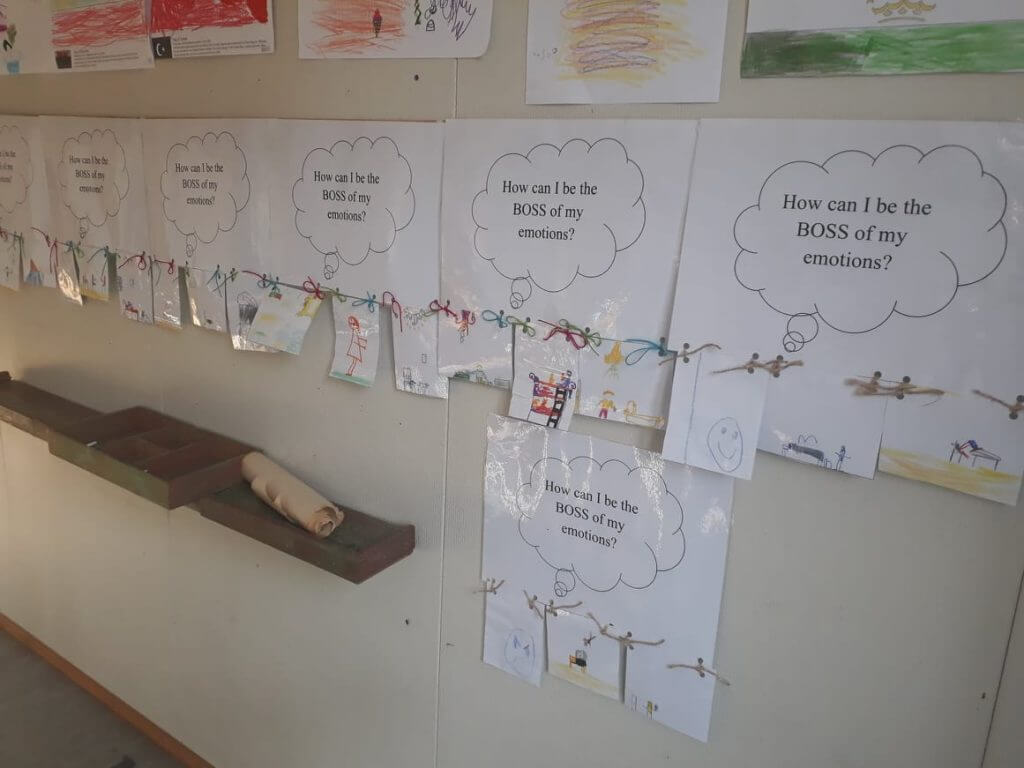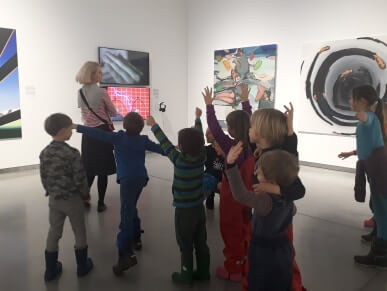Ar jūsų vaikas mokykloje yra gavęs užduotį visa savaitę domėtis savo emocijomis? Akademiniai pasiekimai dažnai būna pirmoje vietoje, bet Lauko mokyklos mokytojo Kama Ahamada patirtis rodo, kad vaikams jausmų pažinimas labai svarbus. Štai ką jis pasakoja apie mokymąsi valdyti emocijas, jų atpažinimą ir reiškimą pasitelkiant literatūrą, meną, užsiėmimus. Emocijų ieškojimai nuvedė net į MO muziejų!
How can I be the boss of my emotions?
How often kids talk about emotions in the classroom or in school in general, whether with an adult or with their peers? How does the school curriculum support the idea that the management of kid’s emotion should be the foundation of their social and intellectual development?
Most of academic researchers on pedagogy and education (Diekstra, 2008; Greenberg, Weissberg, O’brien, Zins, Fredericks; Wilson, Gottfredson, & Najaka, 2001) have found that emotions have a direct impact on the learning and life success. Yet, the obsession of academic achievements leaves no place to the management of emotions and feelings in the curriculum. Although, teachers understand the importance of dealing with children’s emotions, the pressure of academic success is so high that devoting even an hour a week to deal with kid’s negative emotions such as anger or anxiety or more positive ones such as happiness and pride, is seen as a waste of learning/teaching time.

Everyday, in Lauko Mokykla, (primary school section), we hold sessions in which teachers and children share their thoughts and feelings about the day. You will be surprised of how much our young learners take it seriously. This is a precious moment where they learn to listen to each other, empathize, solve conflicts and develop relationships with peers and adults. In our last Project Based learning approach, we took this even further. The whole week was about dealing with our emotions /feelings. Children had to solve out this driving question- how can I be the boss of my emotions?- they identified a wide range of them and their effects on the body, on the relationship with family, friends and others, as well as their impacts on the learning. They also explored few positive strategies and practices that could be applied in their daily routine to cope with negative emotions/feelings.

Through drama, literacy, arts, painting observation and workshop in MO museum, children got a deeper understanding of how emotions play an important role in our everyday life. For their final product, children drew and displayed on the classroom’s walls a variety of strategy flashcards they could use when they feel angry in school and at home. This will be used as a reminder for children to recognize and manage their emotions with or without the help of the teacher.
In conclusion, there can’t be effective holistic learning and teaching if educators keep ignoring the emotional state of their young learners. Regulating children’s emotion should be one of the basic principles of pedagogies, first for the wellbeing of the child, and for his/her social and academic development.


